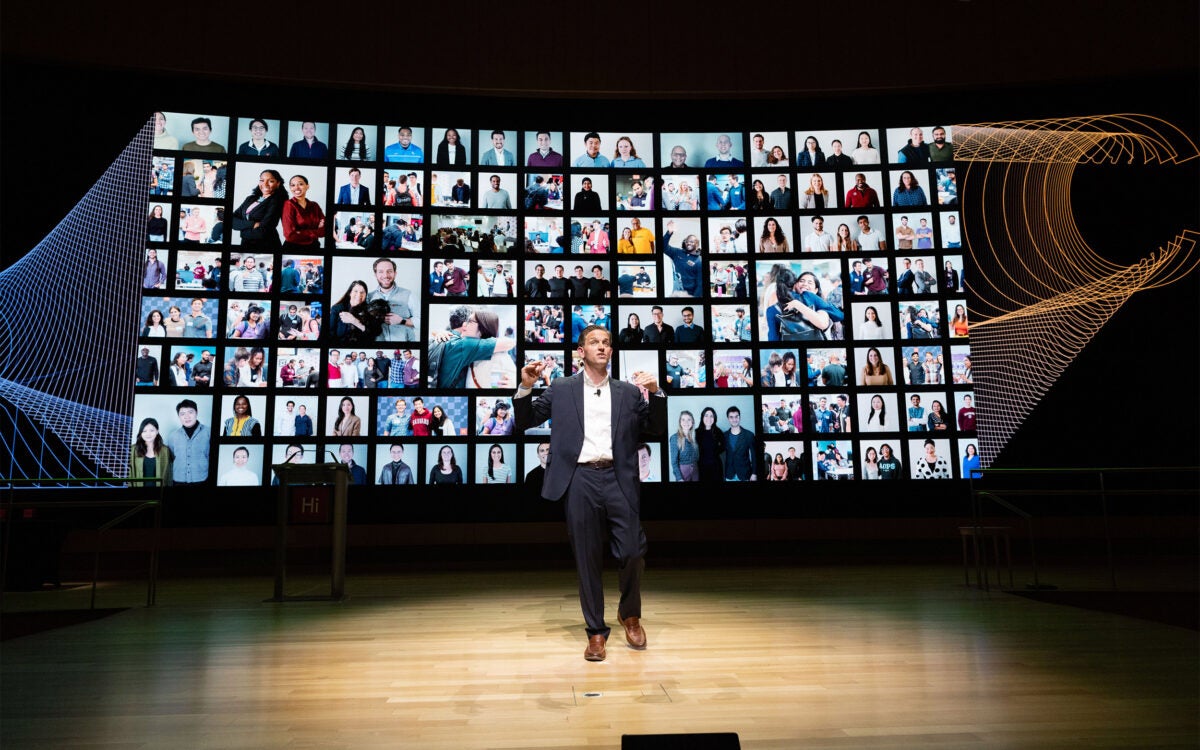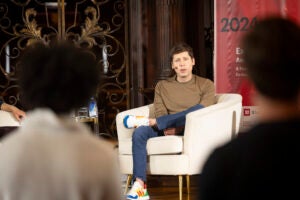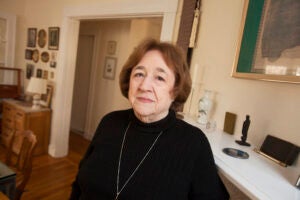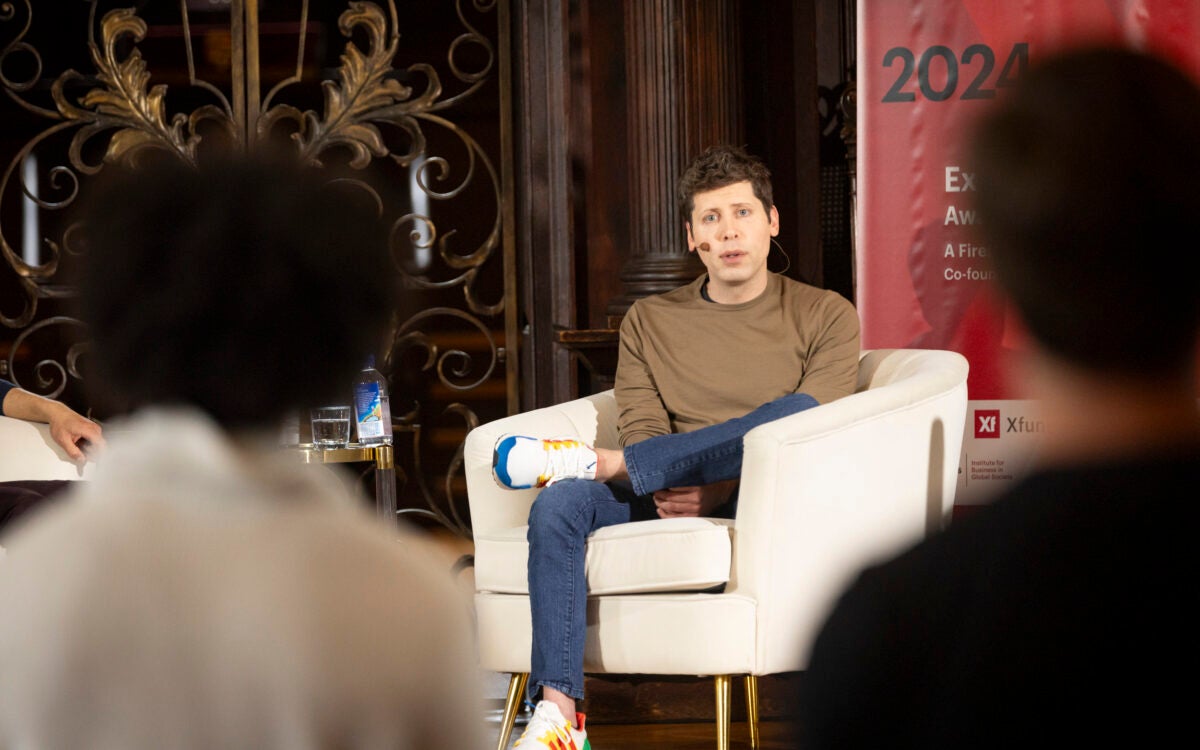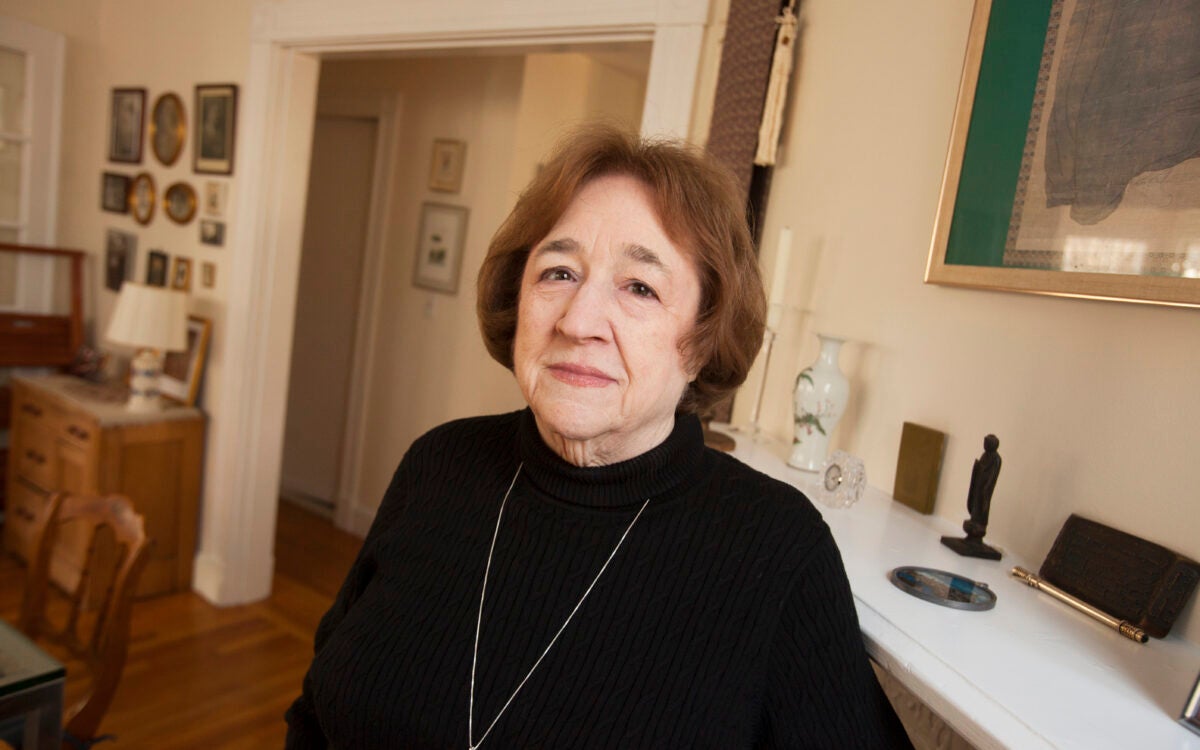A record high for applications
39,044 apply to Harvard’s Class of 2020, a 4.6% increase
Applications for admission to Harvard College are up 4.6 percent this year, with 39,044 students applying to the Class of 2020.
So how exactly do you review 39,044 applications and the same number of essays? It’s a challenge that William R. Fitzsimmons, Harvard College dean of admissions and financial aid, takes in stride.
“We have come a long way since 1976, the first year a single admissions committee reviewed applications from both men and women,” said Fitzsimmons. That year, 11,293 students applied to Harvard College.
Today, an experienced team of faculty and admissions officers is at work. “We have a team with the knowledge and experience to give each applicant careful and thoughtful consideration,” said Fitzsimmons. The large number of applicants, he said, “reflects the effectiveness of Harvard’s outreach to outstanding students everywhere.”
Nearly 25 percent of this year’s applicants had their application fees waived due to financial hardship, a good indication that if they are accepted, they will be eligible for Harvard’s innovative and industry-leading financial aid program.
One in five current undergraduates are from families earning less than $65,000 a year. For these families, Harvard covers all the costs of college, with financial aid covering tuition, room, and board. Their families pay nothing. Harvard also provides these students additional support to cover travel and other expenses even when school is not in session.
For all families, Harvard is committed to removing cost as a barrier to attendance. More than half of current undergraduates receive need-based financial aid, and they are not required to take out loans. Families with incomes from $65,000 to $150,000 and with typical assets pay between zero and 10 percent of their annual incomes. Families with higher incomes can still receive need-based aid depending on individual circumstances, including having more than one child in college or having unusual medical expenses.
“Harvard’s Financial Aid Initiative [HFAI] has resonated strongly with students who never thought Harvard was a possibility,” said Sally C. Donahue, Griffin Director of Financial Aid. “Only about 20,000 students applied before HFAI began over a decade ago. With nearly 40,000 applicants today, Harvard students now come from a much broader array of economic, ethnic, and cultural backgrounds than at any time in Harvard’s history.”
Asian-Americans constitute 21.1 percent of this year’s applicants, Latinos 12.2 percent, African-Americans 10.6 percent, and Native Americans and Native Hawaiians 2 percent. Women make up 49.3 percent of this year’s applicants.
Many other changes made at Harvard over the past decade have also played a role in students’ decisions to apply. They include 126 small freshman seminars; the availability of 65 secondary fields of study (minors); an augmented advising system featuring 73 resident proctors; 190 peer-advising fellows; 340 non-resident members of the Board of Freshman Advisors; the One Harvard initiative encouraging students to work closely with faculty through Harvard’s research centers and graduate schools; increasing numbers of options for study abroad; and the new i-lab.
“Two additional factors have been particularly important in attracting students to Harvard,” said Marlyn E. McGrath, Harvard College director of admissions. “There has been a 7.6 percent increase in applicants planning to study the humanities compared to last year.” McGrath attributes this increase, in part, to students’ excitement over the new Theater, Dance & Media concentration, the reopening of the revitalized Harvard Museum, and the vibrant opportunities in the arts at Harvard, including the American Repertory Theater.
“The other major factor is the Paulson School of Engineering and Applied Sciences. Perhaps stimulated by the Internet popularity of CS50, we have seen a 22.1 percent increase in applicants who are considering a concentration in computer science,” she added.
Applicants will be notified of the Admissions Committee’s decisions on March 31. Admitted students will be invited to visit Cambridge for a special program called Visitas, to be held this year from April 16-18. Students have until the national reply date of May 1 to make their final college choices.
